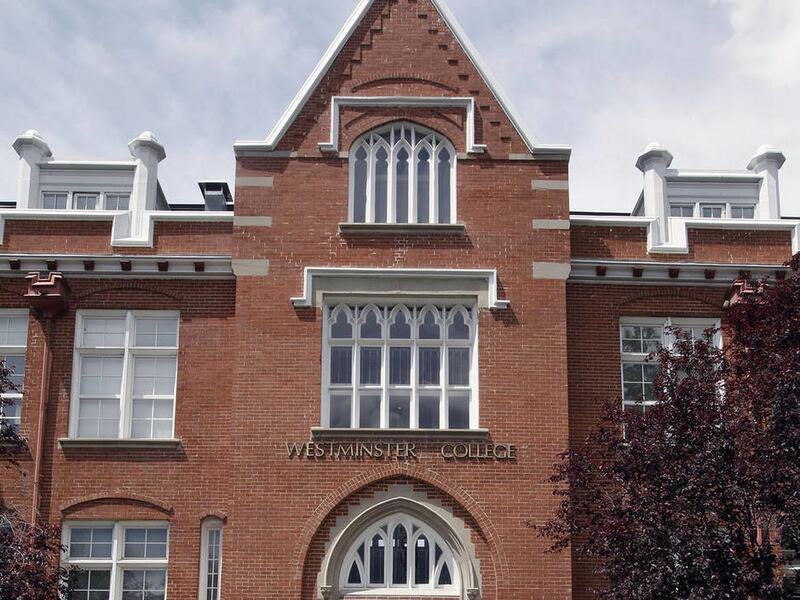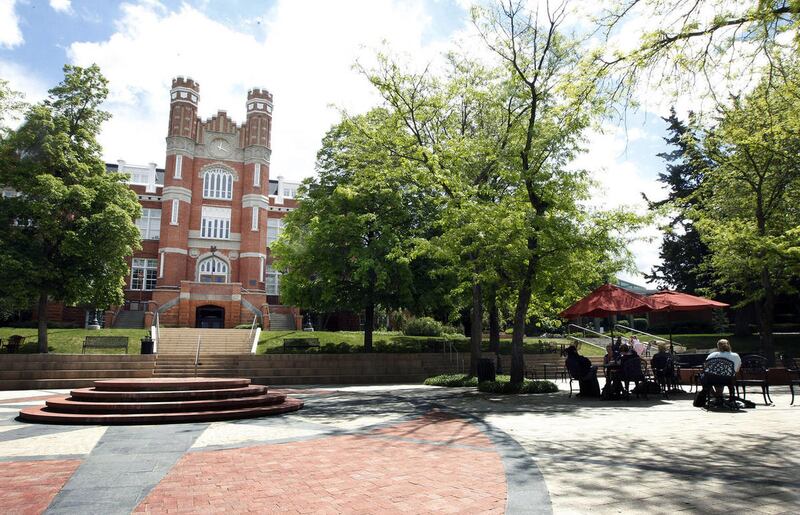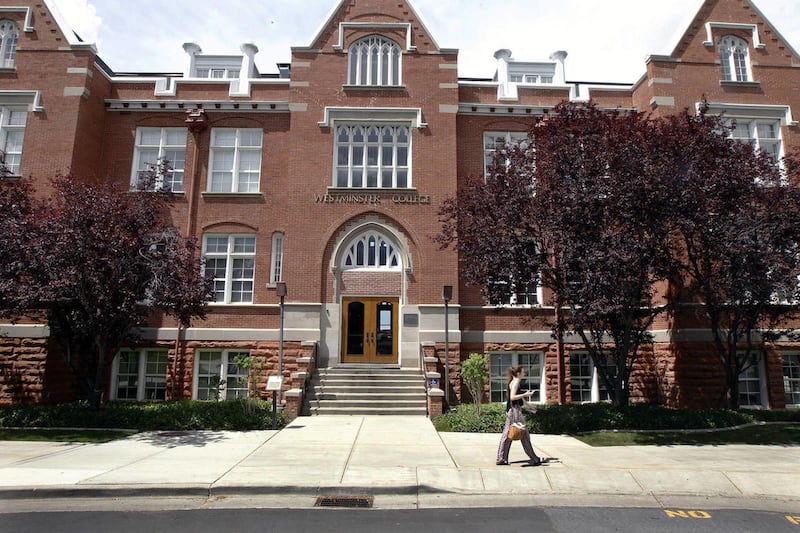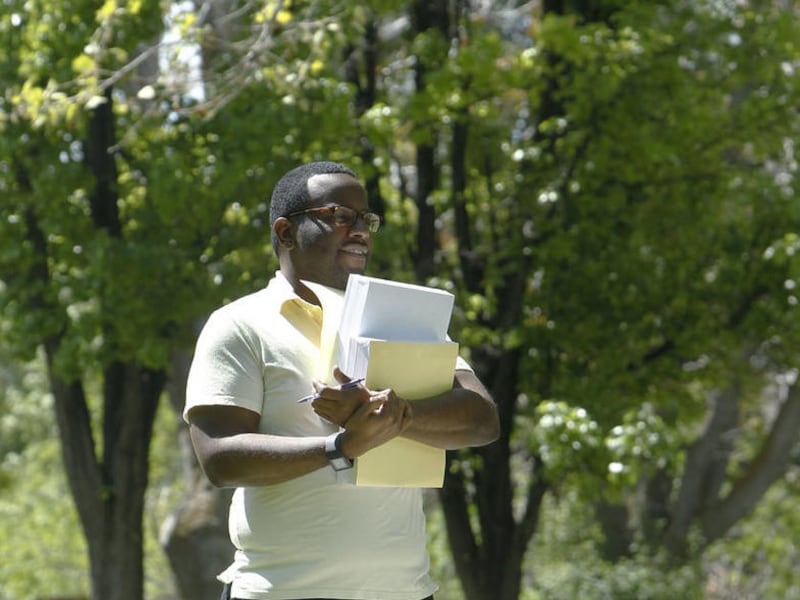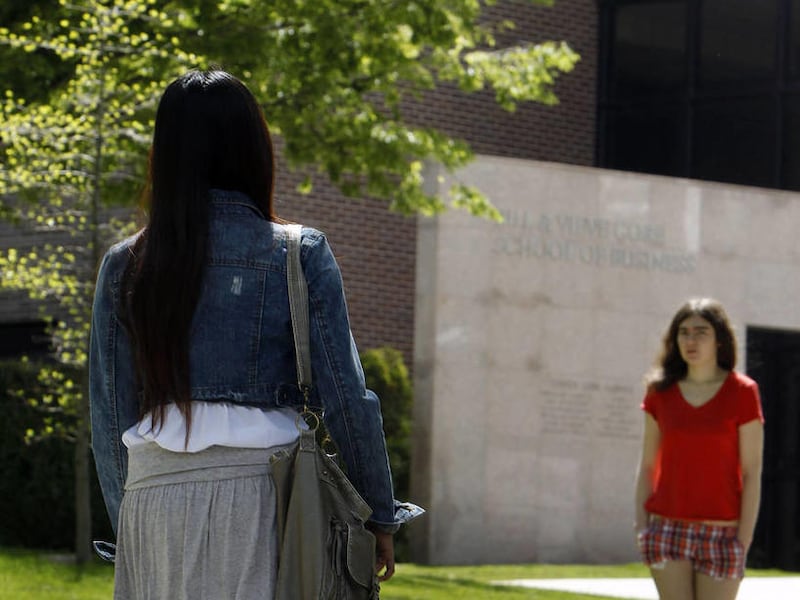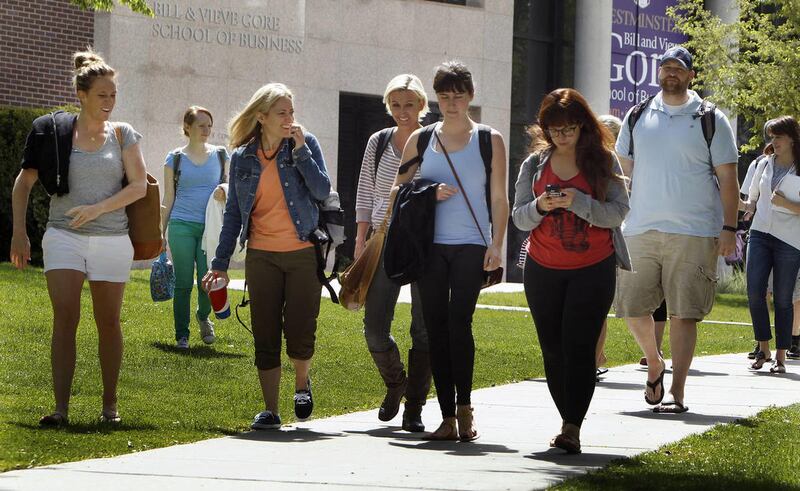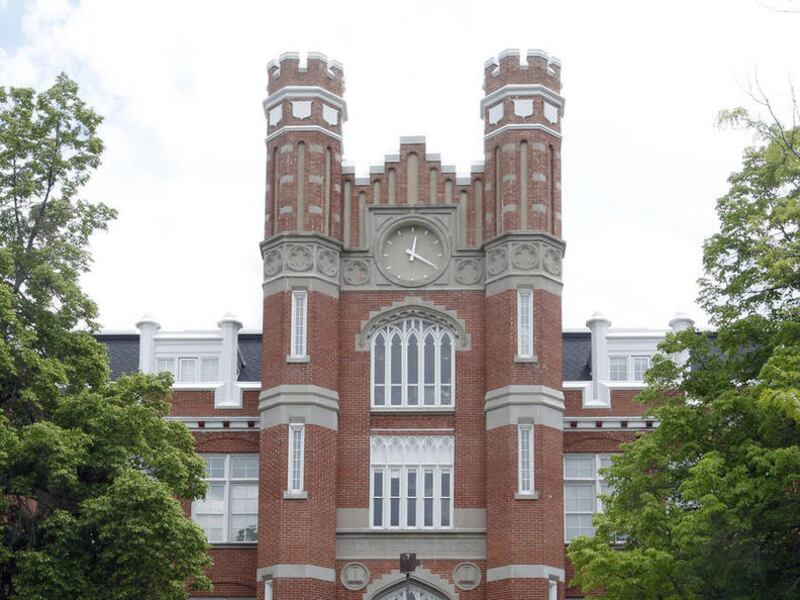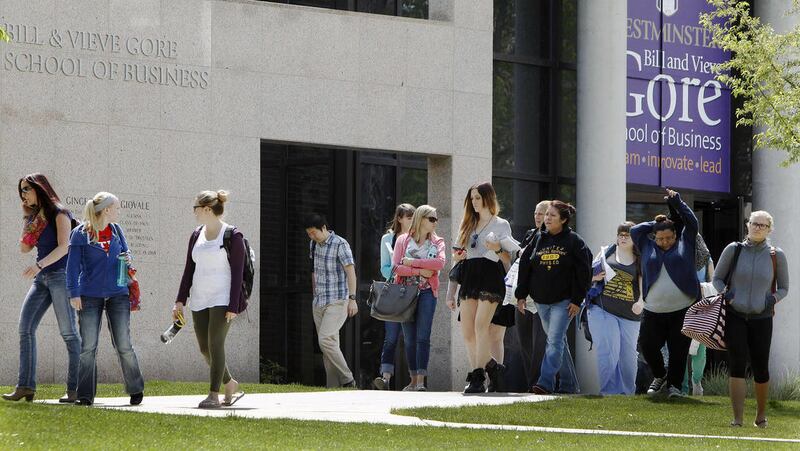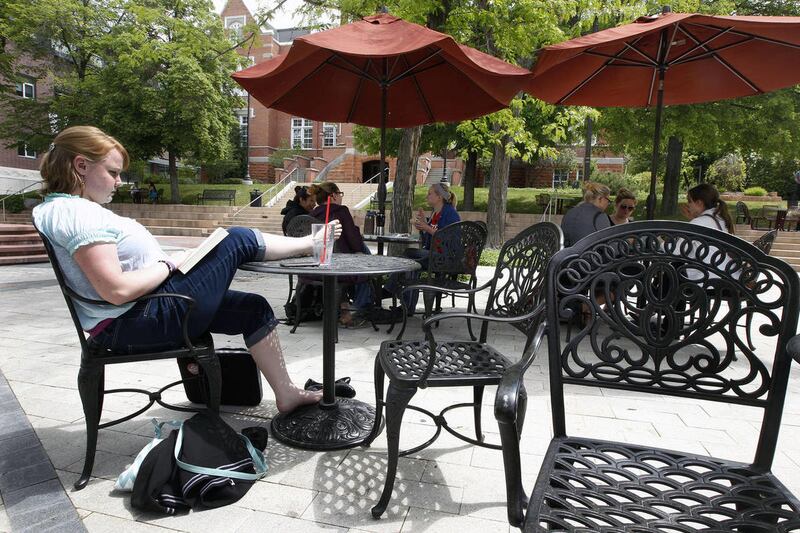We provide professional education, so that's based on finding careers. But we also highly regard civic engagement and the importance of having our students engage in their communities through our curriculum. That's our niche here. – Annalisa Holcombe
SALT LAKE CITY — Private colleges across the country are facing financial difficulty with rises in operating costs and changes in what families want from college and what industries demand from graduates.
It's a dismal matter for institutions such as Sweet Briar College, a 700-student women's college in Virginia that is closing its doors this year due to "insurmountable financial challenges," despite a steady $84 million endowment, according to a March report by the Washington Post.
Leaders at Westminster College, however, say Utah's only nondenominational liberal arts college is bucking the national trend, and a strategic plan is helping ensure long-term sustainability for the institution and the success of its students.
"Throughout the country, small private institutions are struggling, and we wanted to make sure that we find our niche and don't end up like other small private institutions," said Annalisa Holcombe, executive adviser to the president at Westminster. "We're trying to get in front of it rather than (being) reactionary. That may be part of the problem, not seeing the problem until it's too late."
Last year, Westminster rolled out its new five-year plan after the previous one expired. By 2019, institution leaders hope to emphasize a more inclusive learning environment, improve the college's student support services and diversify its revenue sources.
The college will also get a new president this month when Steve Morgan, vice president for institutional advancement and alumni relations, steps in for Brian Levin-Stankevich, who announced his retirement in February.
But embracing a new vision for the future comes with making tough calls. In January, the college announced layoffs for nine staff positions and that several vacant positions would go unfilled. Faculty members will take over some of the responsibilities previously covered by staff.
College spokeswoman Krista DeAngelis said the decision to eliminate those positions wasn't due to financial pressure or dropping enrollment.
"This is obviously a tough decision that the college had to make. But ultimately, the priority is for the students, to better serve them," DeAngelis said. "The college itself has been fiscally sound. Our enrollment numbers are great. Our endowment's at an all-time high, and we're graduating the largest class. We're looking good."
Currently, Westminster enrolls more than 3,100 students, with 487 freshmen enrolling last fall. On May 30, the college will graduate 991 students, its largest class ever.
Tuition, which includes housing, is almost $38,000, though 98 percent of students at the college receive some form of financial aid. When compared to public institutions in the state, whose tuition rates average about $4,000, Westminster can be a hard sell for some Utahns. As a result, half of Westminster's student body is from out of state.
"We are the only nondenominational private institution in the state. And as a result of that, often we look very different to in-state students and their families as they are looking at their choices within Utah," Holcombe said. "But when we market other places, we are a bargain."
An advantage for Westminster is a strong college-age population in the region. Richard Ekman, president of the Council of Independent Colleges, said other institutions struggle because of changing demographics and their limited ability to provide needed financial aid.
"There are fewer 18-year-olds now than there were a few years ago, and they tend to be concentrated most heavily in the southwest and southeastern United States. So if you're a private college in Michigan, you might have a difficult time attracting students," Ekman said. "This 18-year-old population throughout the U.S. is now disproportionately first-generation and low-income students, so they're the very people who need that financial aid."
Part of Westminster's strategic plan focuses on using innovation to improve access for students, such as through online learning, while maintaining a strong student-teacher relationship.
During its first year of implementing the plan, Westminster has also opened its honors program to transfer students and developed programs to give students credit for prior learning experience through employment.
"The top priority is always the support of the students. Ultimately in the bigger picture, the strategic plan is helping that, it's helping the students," DeAngelis said.
Holcombe said keeping Westminster on sure footing will also depend on maintaining a well-defined "niche" among students.
"We provide professional education, so that's based on finding careers. But we also highly regard civic engagement and the importance of having our students engage in their communities through our curriculum," she said. "That's our niche here."
Email: mjacobsen@deseretnews.com, Twitter: MorganEJacobsen

